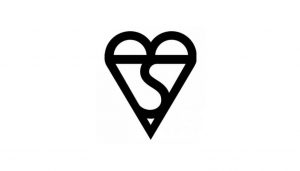The British Standard Specification
When dealing with safety equipment of any kind, quality and reliability is of the utmost importance. Fire safety equipment is no exception, and ensuring that all extinguishers, alarms, detectors, fire doors, signage, emergency lighting and all other components of this important system are in optimum working condition is vital to health and safety.
One way to confirm that your passive and active fire safety units are installed and operating soundly is to check whether they meet the standards of the British Standard Specification.
What is a Standard?
Simply put, a standard is a set of rules and guidelines created by a recognised industry body and agreed by consensus, outlining the criteria that must be met by organisations practicing within the field in order to achieve accreditation.
Standards can apply to both products and services, which in the fire safety industry means risk assessments and safety training as well as equipment. Any standards relating to the field have been drawn up by a host of experts, manufacturers, government departments and others, and are constantly evolving to match developments within the industry.
Why are Standards Needed?
Standardisation helps to make sure that products and services we use in our everyday lives remain compatible, from the shape of plugs on power leads to the sizes of our clothes and shoes.
It also allows for conformity to certain health and safety requirements, ensuring that all smoke detectors or fire extinguishers meet a certain level of quality before they become legal. This helps to clamp down on potentially substandard products being sold in an increasingly competitive market.

What is the BSI?
The British Standards Institution, or BSI, oversee many of the standards implemented in this country, representing the UK internationally and acting as project managers for the development and alteration of new and existing standards. As one of the oldest national standard bodies in the world, the BSI are highly respected, making their accreditation a worthy and valuable mark of approval.
All standards approved by the BSI begin with the prefix ‘BS’, with the addition of ‘EN’ for those that are a British adaptation of a European Standard (those adopted from outside of Europe, International Standards, add an ‘ISO’).
With over 500,000 standards in the BSI archives, many constantly being added to and altered, the organisation represents the pinnacle of standardisation in the UK, and governs many commercial services.
The BSI and the Fire Safety Industry
There are many BS standards that apply to fire safety, particularly those relating to BS OHSAS 18001, which covers all areas of occupational health and safety management. 18001 encourages business owners to put in place steps for ensuring optimal working conditions for employees, determining hazards and taking action to rectify them. The aim is to give all employees within a workplace the right to a certain level of health and safety, with penalties in place for employers and responsible persons that don’t comply.
There are countless BSI standards that apply to very specific areas of fire safety, from BS EN 3-7:2004 which covers the performance and testing requirements of portable extinguishers to BS ISO 23601:2009 which details the principles of escape and evacuation, each one designed to ensure best practice is upheld at all times.
What are the Benefits of Obtaining a Standard?
For businesses, obtaining BSI accreditation and certification is not only important for proving their adherence to health and safety or product quality standards, they have a number of other advantages too.
Customers that see your company has reached the criteria laid out in relevant British standards will be more likely to opt for your products and services, allowing them to trust in your work.
Business to business trading is also helped if all parties are adhering to standards that control the interaction, giving each side the credibility that the other seeks in order to form a relationship.
The conformity that standardisation brings also helps companies to keep a uniform approach to areas such as management, employee rights, working hours and, of course, fire safety.
Request a Callback
Just fill in your details below and we'll get back to you as soon as we can!

About Scutum London
Scutum London is a leading expert in fire safety and security solutions for businesses and organisations located across South East England, including London and Surrey.
From fire alarms, fire extinguishers and fire risk assessments to access control, CCTV and intruder alarm systems – and a lot more besides – we offer a comprehensive range of products and services designed to keep you, your business and your staff and visitors safe.
With decades of industry experience to call on, we’re proud to hold accreditations from leading trade associations and bodies such as British Approvals for Fire Equipment (BAFE), the British Fire Consortium, the Fire Industry Association (FIA) and Security Systems and Alarms Inspection Board (SSAIB).
If you’d like to find out more about Scutum London, get in touch with our friendly team or explore our products and services on our site.

